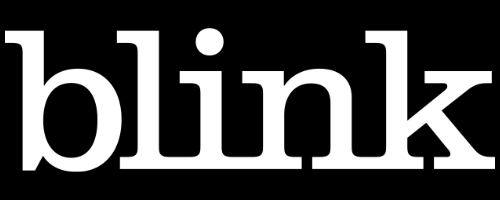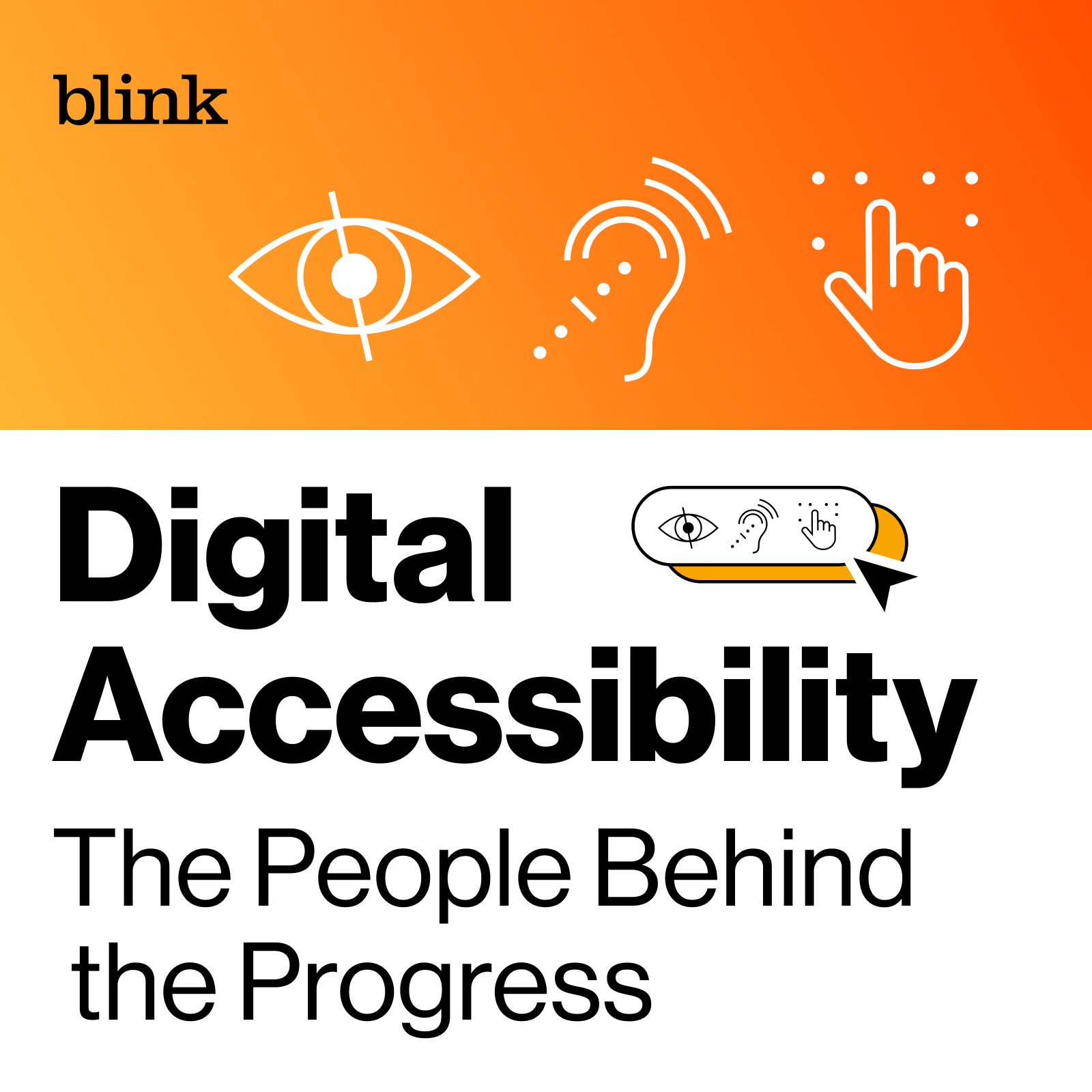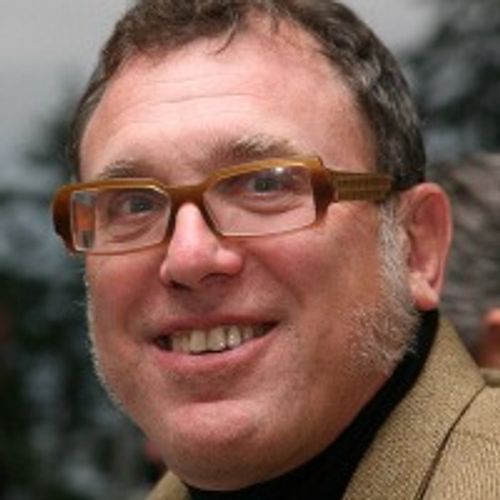Episode 7
Mindset Change Doesn’t Happen Over Night
Miriam Nabinger, independent, Accessibility Specialist
Miriam Nabinger began her work career at IBM where she first became aware of accessibility. She decided to study accessibility and make that the focus of her work. That led to her starting her own accessibility consulting practice. She talks about the current status of accessibility in Austria and the need to create more awareness.
Mentioned in this episode:
Info about Accessibility at Blink
Transcript
(compelling music)
Speaker:- Hello, this is "Digital Accessibility:
Speaker:The People Behind the Progress."
Speaker:I'm Joe Welinske, the creator and host of this series,
Speaker:and as an accessibility professional myself,
Speaker:I find it very interesting as to how others have found
Speaker:their way into this profession, so let's meet one
Speaker:of those people right now and hear about their journey.
Speaker:(compelling music)
Speaker:Well, hello, here we are again.
Speaker:I'm Joe Welinske with an episode where I have
Speaker:the opportunity to speak with an accessibility practitioner,
Speaker:and today I'm pleased to be speaking with Miriam Nabinger.
Speaker:Hello, Miriam, How are you today?
Speaker:- Hello, I'm doing well.
Speaker:How do you do?
Speaker:- Good, well, it's early for me in my day on Vashon Island
Speaker:which is near Blink's Seattle headquarters.
Speaker:Where are you talking to us from?
Speaker:- I'm based in Vienna, Austria,
Speaker:so a bit like later in the day today.
Speaker:- Yeah, all right, well, it's a lovely city.
Speaker:I've been there and had a good time I think on two visits
Speaker:to Vienna, so hopefully we get back again sometime.
Speaker:- That'd be lovely.
Speaker:(overlapping speech)
Speaker:- It's good to have you here on the program.
Speaker:We do like to meet people from all around the world,
Speaker:and so it's good to be able to visit
Speaker:with an accessibility practitioner from Vienna.
Speaker:So probably the best place to start is if you could tell us
Speaker:a little bit about yourself
Speaker:and the work that you're doing right now.
Speaker:- Sure, so right now I've been a freelancer
Speaker:for the last two years.
Speaker:I mainly worked in UX design,
Speaker:but also on the side as an accessibility specialist
Speaker:and as consultant for companies, and right now,
Speaker:I'm trying to make a full-time business out of this.
Speaker:And my mission is actually to empower companies,
Speaker:but also actually the designers, developers,
Speaker:program managers, testers on how to implement
Speaker:and create more accessible products,
Speaker:and I want to teach them this.
Speaker:So right now I'm just building the community.
Speaker:I'm trying to get in touch with a lot of people,
Speaker:learn a lot of new things.
Speaker:I've done it for a few companies already,
Speaker:and it's just something that I really enjoy.
Speaker:I want to teach people what I love
Speaker:and what creates the passion in me,
Speaker:and this is one of the things.
Speaker:- Well, I'm gonna wanna ask you a little bit more
Speaker:about your current accessibility work,
Speaker:but one thing that would be interesting to know
Speaker:if you have some information is what accessibility is
Speaker:like for business in your part of the world.
Speaker:Are there any things that are specific
Speaker:or unique to Austria or that area of Europe
Speaker:that you feel might be different in culture or requirements
Speaker:from other parts of the world that you've noticed?
Speaker:- I think Austria as a country in terms of like,
Speaker:accessibility and also like, LGBT for example,
Speaker:we're a bit behind sometimes, because I know that
Speaker:we do have many accessible public spaces
Speaker:and also digital spaces, but it's just on the,
Speaker:personally I think it's on the lower end of the spectrum.
Speaker:Like, it's not actively communicated,
Speaker:and there is not any awareness in any other business
Speaker:than public, which is, I think it's a shame.
Speaker:I know it's similar in other countries as well
Speaker:that it's just not as broad of a topic
Speaker:except if it's in public,
Speaker:but I wish it would be more active here,
Speaker:because the awareness is not there, to be honest.
Speaker:They just know they need to do it
Speaker:for public and for governmental things,
Speaker:but anything else is just kind of guessing,
Speaker:and I wish we would do more for that.
Speaker:- Well, it sounds like it'll both be more opportunities
Speaker:for you to do that work,
Speaker:but also a lot of hard work to help make people more aware.
Speaker:- Yeah, like creating the first step
Speaker:of awareness is I think the hardest step for me now.
Speaker:- Yep, well, you know, I go,
Speaker:still go through that all the time.
Speaker:So one of the things I do is work with our clients
Speaker:to help them understand the importance
Speaker:of investing in accessibility, and it's still, you know,
Speaker:a lot of education to, you know get to make that part
Speaker:of the budget and make people understand
Speaker:that there's a good business case for it
Speaker:in addition to other factors.
Speaker:Well, I do wanna know a little bit about how you found
Speaker:your way to accessibility.
Speaker:We try to make this program a model for others
Speaker:to see how they can fit into this profession.
Speaker:So where did it start for you
Speaker:where you first became aware of accessibility
Speaker:and then decided that was where you wanted to do your work?
Speaker:- It's actually like, it was more like I fell
Speaker:into it more or less, like it was an accident,
Speaker:or like a coincidence actually, because I've worked
Speaker:at IBM for four and a half years,
Speaker:like, close to five actually, and during my time
Speaker:as a designer there, we had an introduction
Speaker:to accessibility training from one of their teams.
Speaker:They flew in someone from Washington DC,
Speaker:and they gave us like, an introduction to accessibility.
Speaker:And back then it was like, I haven't seen it before,
Speaker:and it was so interesting to me.
Speaker:First I was very impressed,
Speaker:and it opened my eyes to a lot of things,
Speaker:because I later noticed that there are so many overlaps
Speaker:between usability and accessibility.
Speaker:And right now I strongly believe that accessibility is
Speaker:at the core of usability, it won't work otherwise,
Speaker:and so I had this class, learned a lot from it,
Speaker:and a year after, they asked me if I would be willing
Speaker:or interested in creating an internal learning
Speaker:for our cross-functional team, and I did that,
Speaker:and it was one of the most amazing things I've ever done,
Speaker:because it was for me so exciting,
Speaker:and I just loved sharing this importantness
Speaker:with other people and teaching them how to do it.
Speaker:And then I figured, okay, this is actually what I wanna do.
Speaker:And in the years following, I tried to implement a lot
Speaker:of these things into my daily product cycle
Speaker:and the product design cycle I do.
Speaker:And now I really wanna get the word out and teach
Speaker:other people who might not be that aware of it yet,
Speaker:especially like, for example, the developers,
Speaker:they don't learn it in school,
Speaker:and I wish someone would be there
Speaker:to actually tell them how do you do it
Speaker:so that it's like a long time investment for them.
Speaker:- Well, so it sounds like you, it was nice
Speaker:that you were able to be at IBM where you had
Speaker:that initial person come in to talk about that,
Speaker:but then after that there's a lot involved
Speaker:in learning about accessibility, and finding out
Speaker:how to to do all the various things that are involved,
Speaker:so how did that work out?
Speaker:Did you lean on resources within IBM
Speaker:to be able to to build it up in your projects?
Speaker:Or how did you build up your own career now
Speaker:or your own knowledge about it?
Speaker:- Well, what I did primarily at the beginning,
Speaker:I studied the IBM accessibility checklist a lot,
Speaker:because I do believe that they have great resources there,
Speaker:and it gave me everything I needed to get started,
Speaker:and have like, actual examples I could actually use
Speaker:to tell other people like, "Hey, this is how it works."
Speaker:And I studied the guidelines a lot,
Speaker:also did the Google course, and just,
Speaker:it was a lot of learning by doing.
Speaker:And I tried to teach myself, okay,
Speaker:how do I use the screen reader?
Speaker:How do I actually test, and what are the possibilities?
Speaker:So there was a lot of research on my part involved,
Speaker:and it was a lot of learning by doing,
Speaker:and then also asking other people as well
Speaker:as like, people who actually work in the sector,
Speaker:as well as disabled people, and asking them
Speaker:about their experiences, if there's something I can learn.
Speaker:And even now I'm like, I learn something new every day,
Speaker:because it's just something I'm not used to.
Speaker:- And then after that, was that when you began
Speaker:your own work right from the position?
Speaker:- Yes.
Speaker:- Well, I mean that's, I started working
Speaker:for myself early on in my career,
Speaker:and I remember it was a lot of work,
Speaker:and it was kind of scary to be doing that.
Speaker:I know it's more common today for people early
Speaker:in their career to you just decide to do their own thing,
Speaker:but how has that adjustment been going from, you know,
Speaker:a very large prominent organization
Speaker:with a regular paycheck to doing this type of work
Speaker:where it's really up to you to find your own way?
Speaker:- It was a journey, (chuckles)
Speaker:because I quit my job the beginning
Speaker:of the pandemic more or less,
Speaker:and I was like, okay, I guess this is how I do it.
Speaker:It was a big change, but I had to pick up,
Speaker:I'm very grateful that I had a lot of knowledge
Speaker:and awareness from my time at IBM,
Speaker:but I was also very grateful of discovering
Speaker:so many new things about myself
Speaker:and also about how I actually want to work,
Speaker:and where I want to put my focus on next.
Speaker:It was a big change, (chuckles)
Speaker:and it's still something that I need to get used to,
Speaker:but it's like, I think it built my character,
Speaker:but it was not that easy, but I wouldn't miss it now.
Speaker:- And so, you know, with the projects that you've worked on
Speaker:on your own, what is, you know, like, a typical project
Speaker:like, or what's a typical week
Speaker:in your work life for this type work?
Speaker:- That really depends on how many different clients I have,
Speaker:like, how many different areas I work with.
Speaker:The latest one was like, a Swedish startup.
Speaker:They came to me because they said they wanted to change,
Speaker:improve the accessibility of their design system,
Speaker:and also about the website,
Speaker:because they had like, a new rebranding,
Speaker:but they're not happy with the rebranding.
Speaker:So we took the time to actually sit down like, "Hey, okay,
Speaker:what's actually the problem, and where do you want my help?"
Speaker:And it was, I made an audit for them in terms of like,
Speaker:what's the CURE accessibility of their product.
Speaker:Then they came to me like, "Hey, can you actually
Speaker:also teach us the basics and also like what we can do?"
Speaker:So there also like a learning involved for them,
Speaker:for their whole design team in this case,
Speaker:and also for the developers here.
Speaker:I gave like an introduction to accessibility
Speaker:and also to certain custom role segments,
Speaker:and I gave them a list of resources, recommendations.
Speaker:And in the few months afterwards,
Speaker:we went through the implementation together,
Speaker:and we discussed,
Speaker:I was always there if they needed any questions.
Speaker:So I gave them like a roadmap on how they can improve
Speaker:and what they should take care of,
Speaker:and I helped them in achieving this.
Speaker:- And from what you've learned from your practice so far,
Speaker:what are the areas that you've found to be
Speaker:the most challenging to be able to help your clients?
Speaker:- I think it probably culture, because it's,
Speaker:they know if they have a check place, what to do,
Speaker:but personally is more like a mindset change
Speaker:and having the right culture in the company
Speaker:that's beginning, that's both accessibility
Speaker:and inclusion, and I had a hard time discussing that
Speaker:with them and them getting to accept it, actually,
Speaker:because they already have their culture,
Speaker:and then they need to change it, so that was a bit tricky,
Speaker:and I still believe that's a tricky part,
Speaker:because mindset change doesn't happen overnight.
Speaker:- Well, in the time that you've been involved
Speaker:in accessibility, do you see any patterns of things that,
Speaker:you know, you're looking forward to in the future?
Speaker:Do you see certain areas that need more work
Speaker:from the accessibility profession than others?
Speaker:Or are there certain things that you're excited
Speaker:to be working on in the future
Speaker:that you're just starting to get involved with?
Speaker:- Personally, I think that the area
Speaker:of e-commerce is a bit lacking when it comes
Speaker:to accessibility, because there are,
Speaker:that's the area where I think we can do way more,
Speaker:and not just like, in public space, but like,
Speaker:any e-commerce sector, because there's just not a lot of,
Speaker:it's mostly prefixed templates,
Speaker:but there is like, issues in templates already,
Speaker:so there would be change needed there.
Speaker:And I'm looking forward to getting
Speaker:into the current movement where accessibility is
Speaker:with the change of the European directive,
Speaker:there's like a new movement right now
Speaker:with people being even more aware of the necessity,
Speaker:and I'm kind of happy about joining this movement
Speaker:and being there to support other companies here.
Speaker:- And so as you do that, are there other groups
Speaker:or communities in your area
Speaker:that it's possible to get involved with?
Speaker:Or are you gonna be going to conferences
Speaker:and things now that the pandemic is over?
Speaker:- Yes, I would love to, and I already signed up for a few.
Speaker:Right now I'm networking in Vienna here.
Speaker:That's both with creatives but also developers,
Speaker:so I'm joining the network here and see what can be done,
Speaker:or if just anything I can do to help,
Speaker:and I hope I can join more conferences soon,
Speaker:so hopefully in person.
Speaker:But the best accessibility conferences are normally abroad,
Speaker:(chuckles) so I might have to travel for that.
Speaker:- Well, I went to my first conference
Speaker:since the pandemic started with CSUN back in March,
Speaker:and it was fun to be out among people again.
Speaker:So maybe we'll meet up at a future event,
Speaker:but I appreciate you taking the time to chat with me today.
Speaker:It was really interesting to hear how you've started out
Speaker:on your own individual business exploration
Speaker:of accessibility, and so, you know,
Speaker:good luck with everything that you're working on.
Speaker:- Thank you very much.


